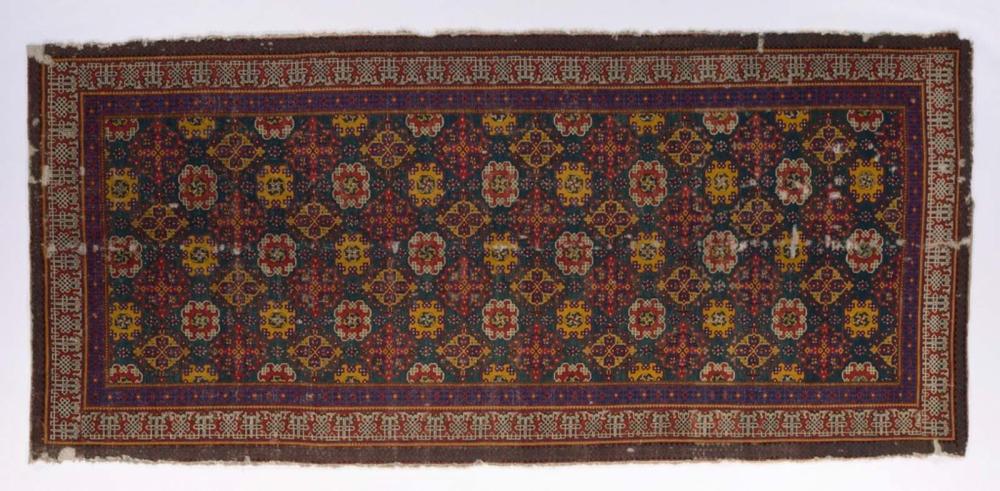Advanced Search 
Rug

Small-pattern Holbein carpet
Rug
Spanish (Mudejar)
15th century
Object Place: Probably Alcaraz, Spain
Medium/Technique
Wool warp, wool weft, wool knotted pile, Spanish knot
Dimensions
458.5 x 212.1 cm (180 1/2 x 83 1/2 in.)
Credit Line
Elizabeth H. Flint Fund, In memory of Sarah Gore Flint Townsend
Accession Number39.614
NOT ON VIEW
CollectionsEurope, Fashion and Textiles
ClassificationsTextiles
DescriptionMudejars, or Spanish Muslim craftsmen working for Christian patrons, made this vivid carpet, adopting its design--a field pattern of octagons and diamonds and a border derived from Arabic script--from contemporary Turkish carpets. Several European painters, including Hans Holbein the Younger (about 1497-1543) , depicted such carpets, and their design has become known as "small-pattern Holbein".
Unlike its Turkish models, this carpet is woven with the single warp knot then peculiar to Spain.
Warp, white wool; weft, white wool, four passes between each row of knots; Spanish knots, 20 to a square centimeter. The ground of the main field is dark green; the design of medallions is bright yellow, red, blue, black, green, violet, and white. The ground of the main border is red; the design, in imitation of Kufic (angular Arabic) script, is white, green, black, blue, yellow, and red. The guard borders have designs of medallions, interlaces, and geometric forms.
Unlike its Turkish models, this carpet is woven with the single warp knot then peculiar to Spain.
Warp, white wool; weft, white wool, four passes between each row of knots; Spanish knots, 20 to a square centimeter. The ground of the main field is dark green; the design of medallions is bright yellow, red, blue, black, green, violet, and white. The ground of the main border is red; the design, in imitation of Kufic (angular Arabic) script, is white, green, black, blue, yellow, and red. The guard borders have designs of medallions, interlaces, and geometric forms.
ProvenanceLent by Dr. George A. Kennedy and Mrs. Mary Price Kennedy, April 11, 1913. Transferred to Mrs. Mary Price Kennedy, June 26, 1926.
